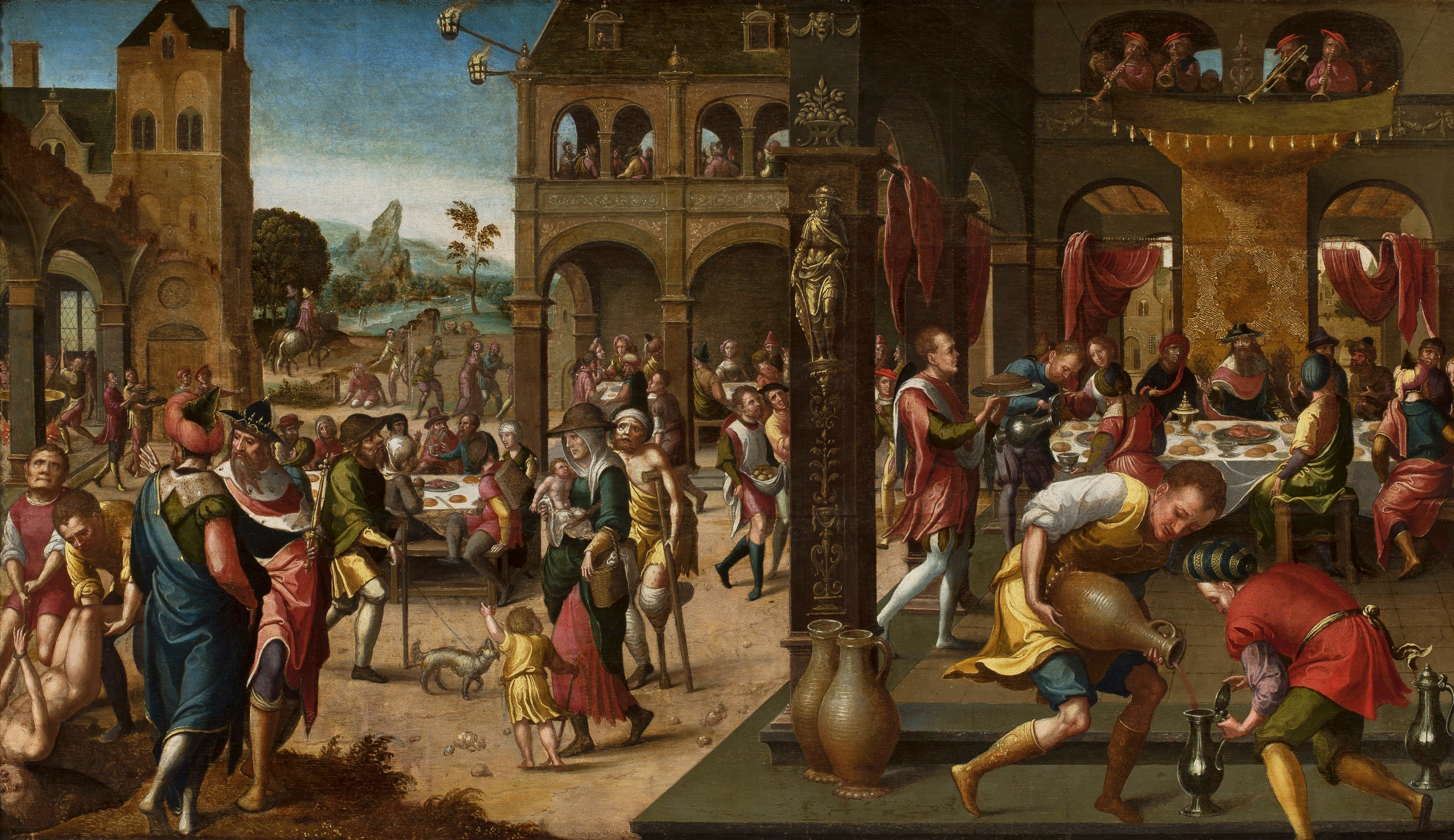The Parable of the Great Banquet
Luke 14:15-24
15 When one of those who reclined at table with him heard these things, he said to him, “Blessed is everyone who will eat bread in the kingdom of God!” 16 But he said to him, “A man once gave a great banquet and invited many. 17 And at the time for the banquet he sent his servant to say to those who had been invited, ‘Come, for everything is now ready.’
18 But they all alike began to make excuses. The first said to him, ‘I have bought a field, and I must go out and see it. Please have me excused.’19 And another said, ‘I have bought five yoke of oxen, and I go to examine them. Please have me excused.’ 20 And another said, ‘I have married a wife, and therefore I cannot come.’
21 So the servant came and reported these things to his master. Then the master of the house became angry and said to his servant, ‘Go out quickly to the streets and lanes of the city, and bring in the poor and crippled and blind and lame.’22 And the servant said, ‘Sir, what you commanded has been done, and still there is room.’ 23 And the master said to the servant, ‘Go out to the highways and hedges and compel people to come in, that my house may be filled. 24 For I tell you, none of those men who were invited shall taste my banquet.’”
Observations & Reflections
 The parable of the great banquet has a second version in Matthew 22:1-14. It should be observed that they are not in-fact the same parable. However, they are demonstrating the same point. Luke’s version of the parable is is much more harsh in it’s view of the Jewish people; in particular, the currently religious leaders who have been attacking Jesus’ ministry.
The parable of the great banquet has a second version in Matthew 22:1-14. It should be observed that they are not in-fact the same parable. However, they are demonstrating the same point. Luke’s version of the parable is is much more harsh in it’s view of the Jewish people; in particular, the currently religious leaders who have been attacking Jesus’ ministry.
Luke’s parable is climaxed on a single thought which should be read as a condemnation of the Jews who have rejected Jesus and His ministry.
“For I tell you, none of those men who were invited shall taste my banquet.”
As we have mentioned before, Luke’s gospel has lead many to believe that replacement theology is well supported in the gospels. To be fair to this perspective, it appears that such a believe is supported by Luke. However, we must recall that Luke was the companion of Paul, the apostle to the gentiles. It seems likely that Luke would emphasize the allowance of the gentiles into the kingdom of God which was initially granted to the Jews. However, we must keep in mind that Luke’s emphasis on this feature of the gospel is somewhat counter acted by the other gospel writers as well as Paul himself.
 This parable is a representation of those who hear the Gospel and either accept it or reject it. Those who refuse to accept the Gospel are always filled with excuse and reasons not to follow after Christ. Jesus wanted to emphasize that this is exactly what was about to take place with the Jewish nation.
This parable is a representation of those who hear the Gospel and either accept it or reject it. Those who refuse to accept the Gospel are always filled with excuse and reasons not to follow after Christ. Jesus wanted to emphasize that this is exactly what was about to take place with the Jewish nation.
The Jewish nation was consumed with the idea of the Messiah coming to save them. Yet, with Jesus Christ standing right in front of them, they were blinded by their own ideas as to what the Messiah ought to be and therefore rejected Jesus and the message of the Gospel that He came to preach.
Notice how the master makes it a point to make sure his entire banquet hall is filled. He does this because he wants to make sure that he can get as many people in as possible so they don’t miss out on the amazing feast he has planned. This is a representation of how Jesus Christ is also attempting to save as many souls as possible. He pursues us hard and does not give up on us even though we give up on Him.
He is always on the move to bring us to an eternal relationship with Him and those who do not accept His invitation, will be eternally separated. Do not ignore God’s call to come to Him today. He is seeking you out and longs for you to experience the true joy and blessings one will ever have in this life and for all eternity.

